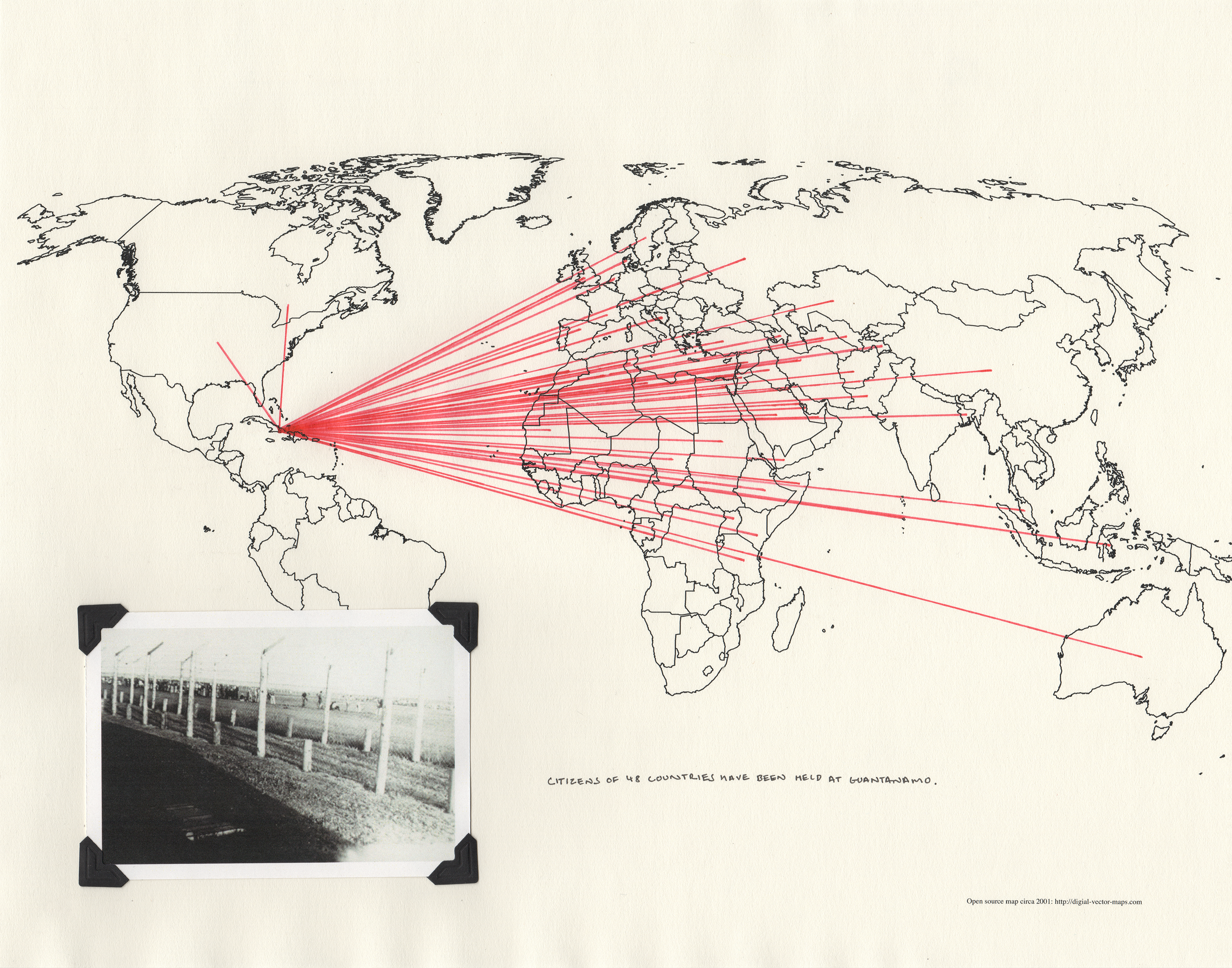
"Tea Project" by Amber Ginsburg and Aaron Hughes. (Photo courtesy of the artists)
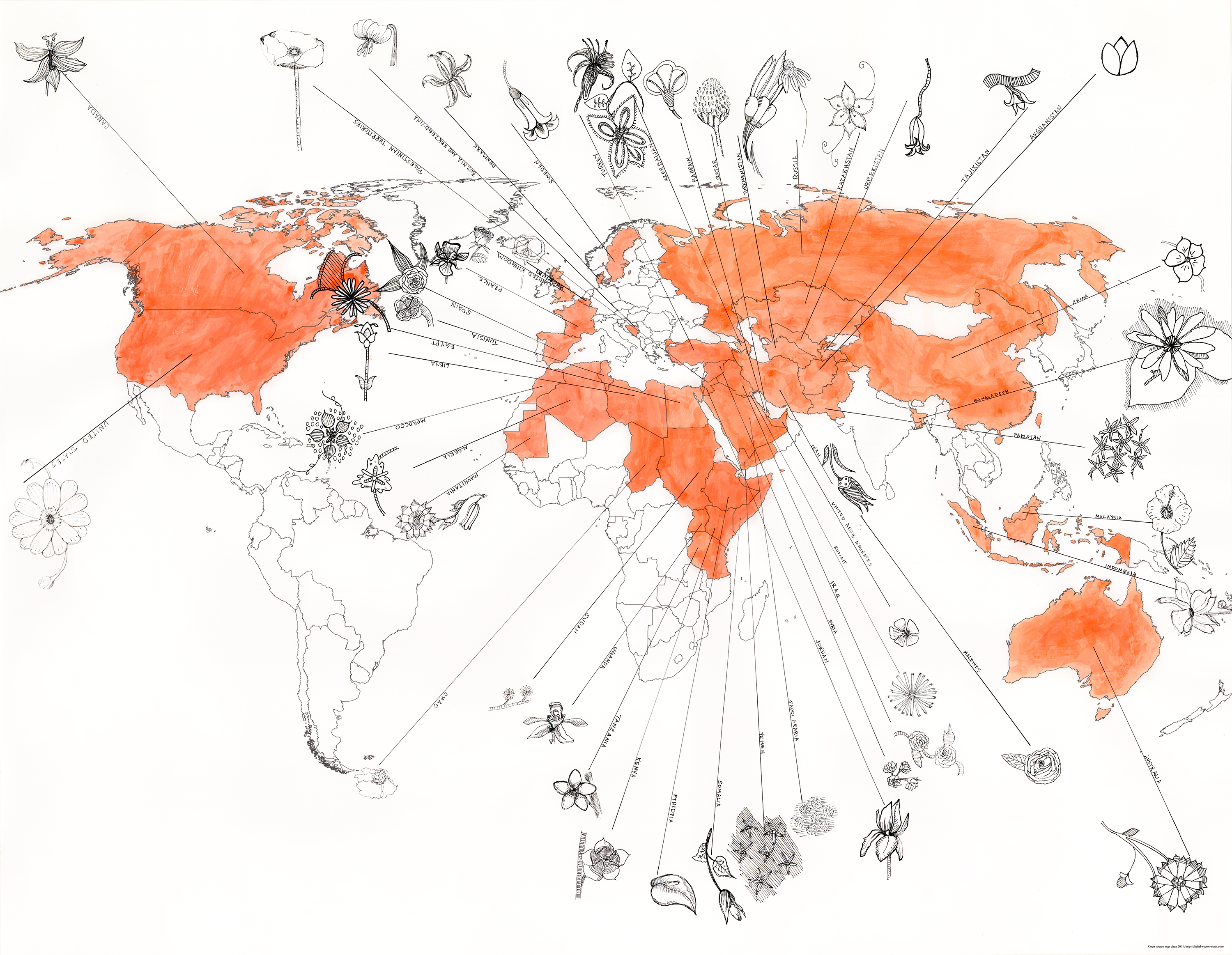
"World Map with 48 flower drawings & 48 collages (one for each national flower), 2014-ongoing" by Amber Ginsburg and Aaron Hughes. (Photo courtesy of the artists)
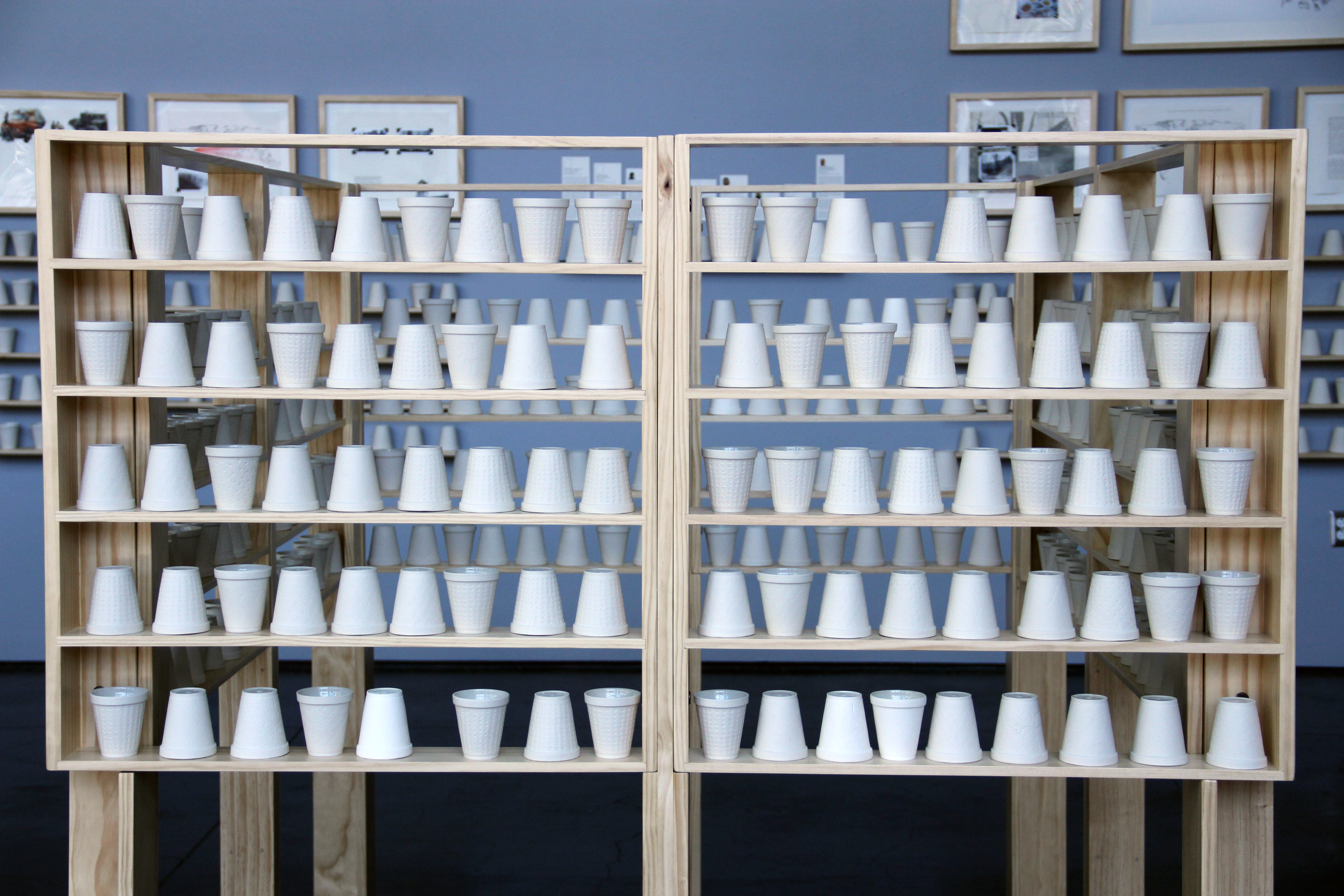
"Teacup Archive, 2014-ongoing" by Amber Ginsburg and Aaron Hughes. "Photo courtesy of the artists"
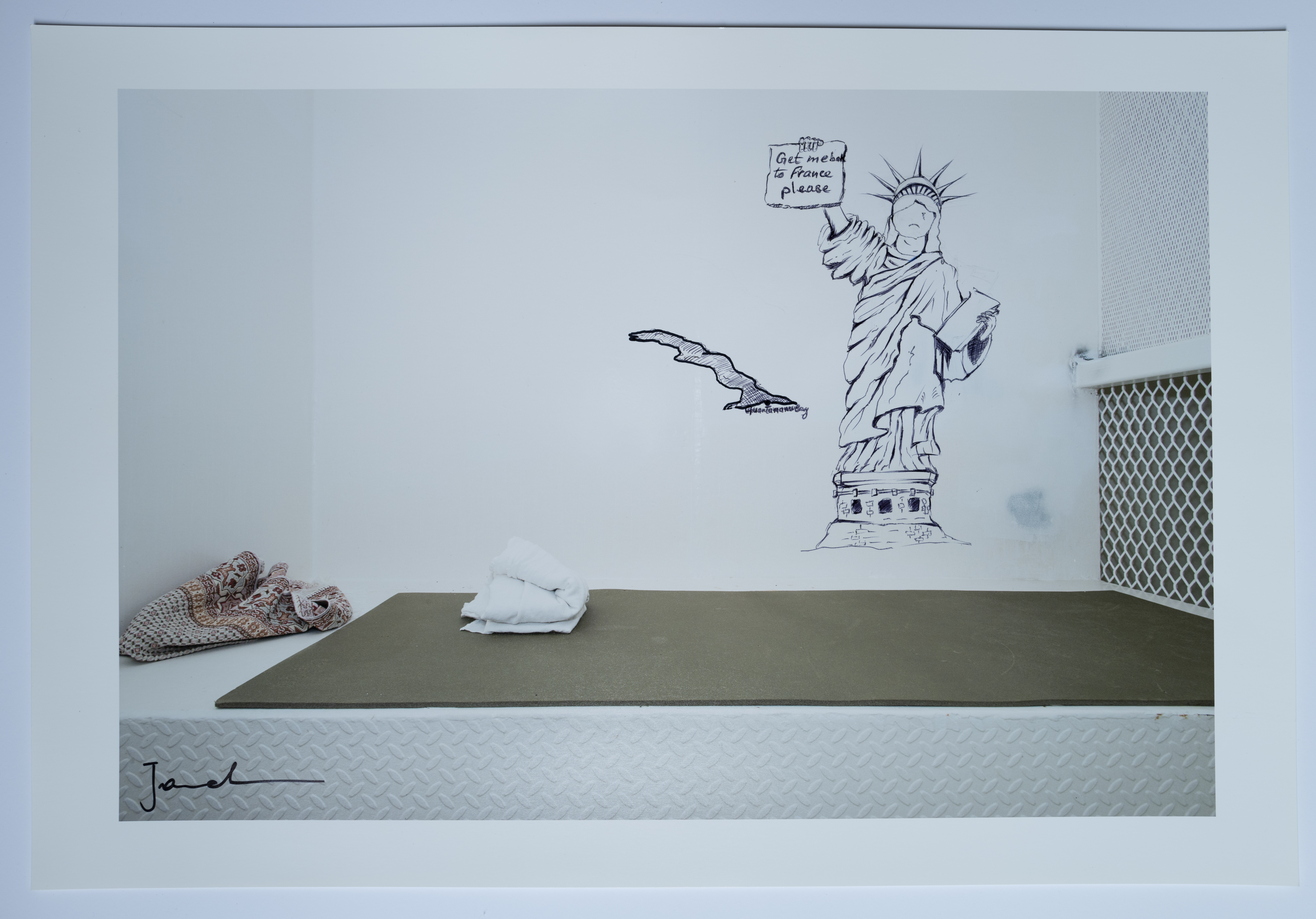
"Lady Liberty, Camp Echo (Send me home), 2015" by Debi Cornwall and Djamel Ameziane. (Photo courtesy of the artists)
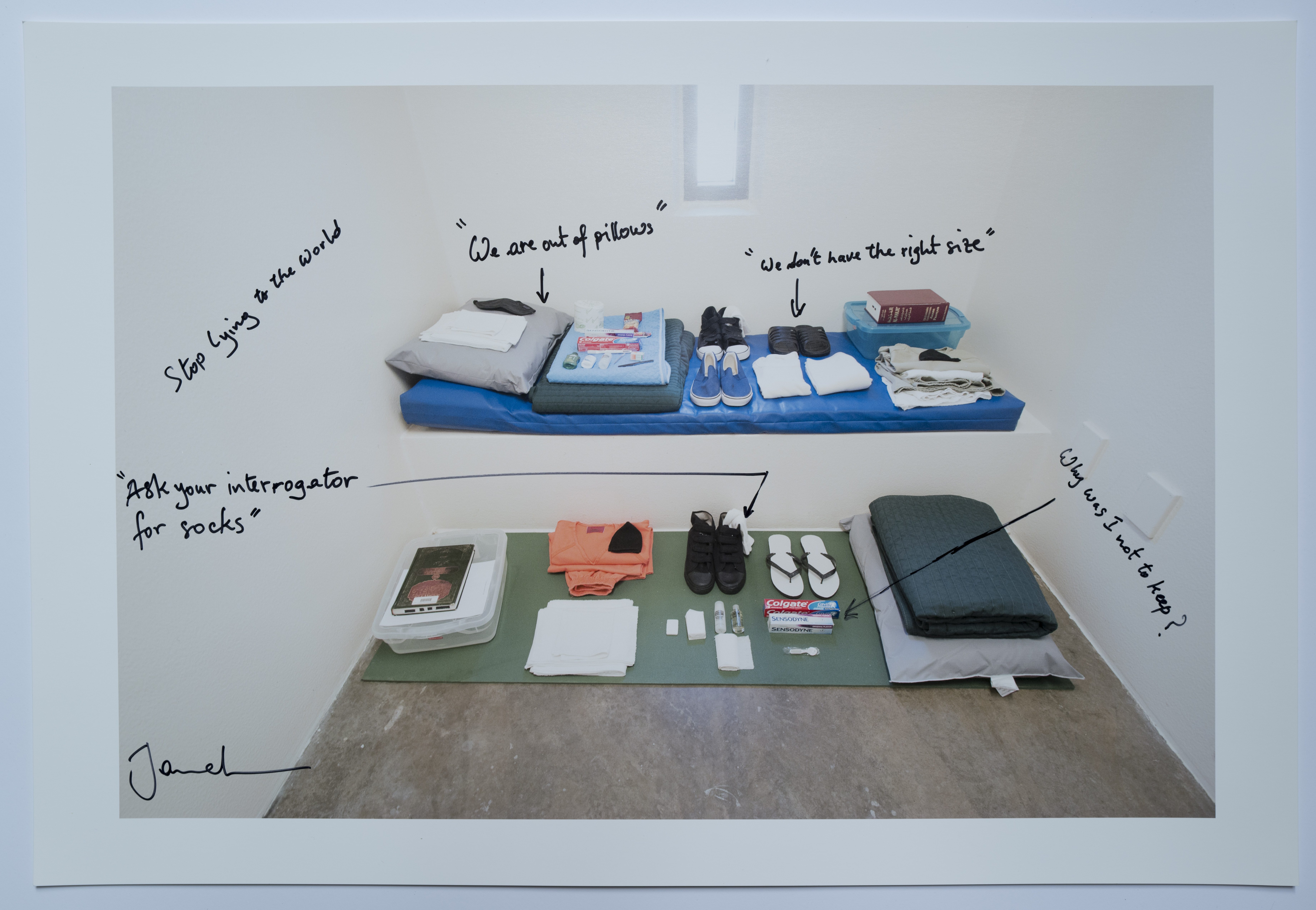
"Comfort Items, Camp 5 (Stop lying to the world), 2015" by Debi Cornwall and Djamel Ameziane. (Photo courtesy of the artists)
CHICAGO — DePaul Art Museum’s exhibition “
Remaking the Exceptional: Tea, Torture, and Reparations | Chicago to Guantánamo” marks 20 years since the opening of the United States’ extralegal prison in Guantánamo Bay, Cuba, by examining the local and international ramifications of state violence. The exhibition and associated publication, published by the museum, uplift acts of creative resistance while highlighting connections between policing and incarceration in Chicago and the human rights violations of the “Global War on Terror.”
The exhibition will run March 10 through Aug. 7, 2022, and feature paintings, drawings, sculptures and installations produced by torture survivors, artists, activists and collectives. Contributors to the exhibition include Abdualmalik Abud, Mansoor Adayfi, Djamel Ameziane, Muhammad Ansi, Ghaleb Al-Bihani, Dorothy Burge,
Chicago Torture Justice Memorials, Debi Cornwall, Amber Ginsburg, Assad “Haroon” Gul, Mashaun Hendricks, Aaron Hughes,
Invisible Institute, Damon Locks, Lucky Pierre, Trevor Paglen,
Prison + Neighborhood Arts/Education Project, Khalid Qasim, Sabri Mohammad Ibrahim Al Qurashi, Ahmed Badr Rabbani, and Sarah-Ji Rhee.
Al Qurashi, who was transferred from the military prison at Guantánamo Bay to Kazakhstan in 2014 and whose works in the exhibition range from capturing the interiors of the prison to beautiful bouquets of flowers, uses painting to “escape all the difficulties and hardships and go to this place which relaxes me.”
“Guantánamo was really difficult,” he said. “Even during those difficult times, during the hunger strike, or during hardships in the camp, I would go to art class … through painting, I could transform the atmosphere of the jail. If I was working on a nature scene, landscape or ocean, I could feel myself inside the painting itself. It was my way of escaping jail and detention. So, yes, art helped me to survive there, and it still does today.”
Occupying all of the museum’s galleries, “Remaking the Exceptional” is organized by DePaul Art Museum staff and is curated by contributing artists Amber Ginsburg and Aaron Hughes. “The Tea Project,” which informs the development of the exhibition and the accompany publication, is an ongoing series of installations and performances that create opportunities to engage with local and global histories of war, torture and confinement. In the project, tea serves not only as a contradictory metaphor for imperialism and settler colonialism, but also as a ritual of human connection and international solidarity.
“Remaking the Exceptional” is accompanied by a fully illustrated exhibition catalogue that brings together artworks, poetry and testimony by torture survivors from Chicago and abroad, as well as new texts by leading scholars working at the intersection of aesthetics and politics.
“We are taking a hard and honest look together at our city’s and country’s histories, our reputation across the world, and the impact that has on our future generations of students, law enforcement and military personnel, journalists, scholars, artists and civilians,” said Laura-Caroline de Lara, interim director of DePaul Art Museum. “However, the examples of resilience and strength evident in each of the works by survivors are beautiful testaments to the healing power of art and its value as a catalyst for change.”
Ahead of the exhibition, an online conversation is scheduled for Jan. 8, 2022, which will observe the 20th year of Guantánamo as an extra-legal prison and the seventh year since Chicago’s passage of the Jon Burge reparations ordinance, the first and only ordinance of its kind in the U.S. Panelists include Aislinn Pulley (
Chicago Torture Justice Center), Kilroy Watkins (Chicago torture survivor), Mansoor Adayfi (Guantánamo torture survivor and author of “Don’t Forget Us Here”). Joey L. Mogul (
People’s Law Office) will moderate the panel.
Other public programs in conjunction with the exhibition include a poetry reading and stories of resistance by survivors, a workshop by Chicago artist/activist Monica Trinidad on how to produce artwork in collaboration with organizations and activists, a performance by Damon Locks and Martine Whitehead from Prison + Neighborhood Arts/Education Project (PNAP), and a quilting workshop with artist Dorothy Burge. Dates and details will be forthcoming on the museum’s website.
Support for this exhibition and its related programming is provided by the Andy Warhol Foundation for the Visual Arts and from Illinois Humanities through its Envisioning Justice initiative. The museum is also pleased to collaborate on this project with other organizations doing ongoing and deeply impactful work in these areas, such as the
Center for Constitutional Rights,
Chicago Torture Justice Memorials,
Chicago Torture Justice Center,
CAGE,
HeaRT,
Reprieve,
Witness Against Torture,
Invisible Institute,
Medill School of Journalism at Northwestern University, and
Prison + Neighborhood Arts/Education Project.
DePaul Art Museum is located at 935 W. Fullerton Ave. on DePaul’s Lincoln Park Campus. The museum is open 11 a.m. – 7 p.m. Wednesday and Thursday and 11 a.m. – 5 p.m. Friday, Saturday and Sunday. It’s closed Monday and Tuesday. Admission is free. Additional information is
online or by calling 773-325-7506.
###
Source:
Laura-Caroline de Lara
Media contact:
Russell Dorn
312-362-7128 (Desk)
312-241-9856 (Media line)